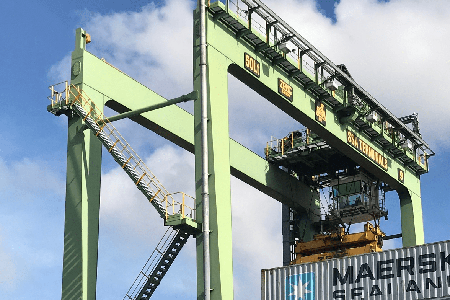EU-ASEAN Business Council Publish EU-ASEAN Business Sentiment Survey
Published: 13/11/20
On October 8, 2020, the EU-ASEAN Business Council (EU-ABC) published the sixth edition of its flagship publication, the EU-AESAN Business Sentiment Survey (EABSS).
The EU-ABC was formally established in 2014 to promote the interests of European businesses in ASEAN. The council regularly initiates formal events with government officials and prominent business and industry leaders in ASEAN.
The EABSS is issued annually and provides the latest business outlook in the region for European companies. Key issues such as the macro-economic environment as well as policy and regulatory reforms are surveyed with support from the European Chambers of Commerce located in every ASEAN member state.
This year’s EABSS surveyed European business’ views on the impact of the pandemic on business activities and the responses of ASEAN governments. Further, while the survey identifies ASEAN as the region with the best economic opportunities, there is growing interest in other regions, such as North Asia and Africa.
ASEAN’s response to COVID-19
The survey showed that 49 percent of respondents thought ASEAN states did not have the necessary resources to deal with the pandemic and that 92 percent said it had a negative impact on their businesses.
Some 44 percent said that they will be downsizing investments in ASEAN in the short- and medium-term; however there was more confidence in the region post COVID-19. The survey showed that 34 percent of respondents saw ASEAN as a region to reorganize their supply chain shifts, followed by Europe (20 percent) and China (17 percent). Business respondents felt that ASEAN should modernize its custom procedures to ease the movements of goods and take advantage of these global supply chain shifts.
The current business outlook in ASEAN
The survey confirmed that business confidence in ASEAN remains strong, despite optimism declining from 63 percent in 2019. Some 53 percent of viewed ASEAN as the region with the best economic opportunities for the next five years, with China coming second at only 14 percent.
59 percent of businesses did perceive the bloc to be more important in terms of worldwide revenues although this, too, was a drop from 71 percent in 2019, demonstrating that businesses are worried about the region’s post COVID-19 economic recovery. The survey also saw businesses increase their interests (albeit small) in India (eight percent), North Asia (five percent), and Africa (six percent) as new regions for diversification.
Regarding trade and investment, 73 percent of respondents expect greater trade and investment in ASEAN (down from 84 percent in 2019) in the next five years and 56 percent of European businesses were positive about expanding in the region (also down from 61 percent in 2019).
The main factors affecting trade and investment activities for businesses are rising protectionist sentiments, lack of harmonization standards, and lack of service sector liberalization.
Despite these challenges, respondents willing to expand into the region noted that diversifying their customer base and production costs were cheaper here than in other regions. Further, improving infrastructure was also another factor.
Importance of ASEAN integration to businesses
A majority of respondents (70 percent) felt that ASEAN economic integration was important for the success of their business in the region. However, only two percent felt that the progress of economic integration was proceeding fast enough, a drop from six percent in 2019.
Through such integration, ASEAN can better harmonize standards and regulations to ease the intra-ASEAN movement of goods as well as remove market access restrictions. The survey showed that 8 percent of respondents would increase the usage of regional supply chains if certain trade barriers were removed.
European businesses want more progress on FTAs
The vast majority of respondents (96 percent) want the EU to accelerate the completion of its free trade agreement (FTA) with ASEAN, compared to other bilateral deals between the EU and ASEAN.
More than two-thirds felt that the lack of a region-to-region FTA has placed businesses at a competitive disadvantage compared to businesses from countries that have an FTA with ASEAN, such as Japan, South Korea, India, and China. This feeling is even more marked from respondents in the services sector.
The respondents saw the following important factors when implementing a region-to-region FTA or bilateral FTA with ASEAN:
- Removal of tariffs;
- Removal of non-tariff barriers between the EU and ASEAN;
- Removal of market access restrictions;
- Harmonization of standards;
- Intellectual property protection;
- Open government procurement process;
- Environmental protection;
- Labor rights;
- Competition law; and
- Removal of ownership and restrictions (foreigners being allowed 100 percent ownership of businesses)
Source: www.aseanbriefing.com





